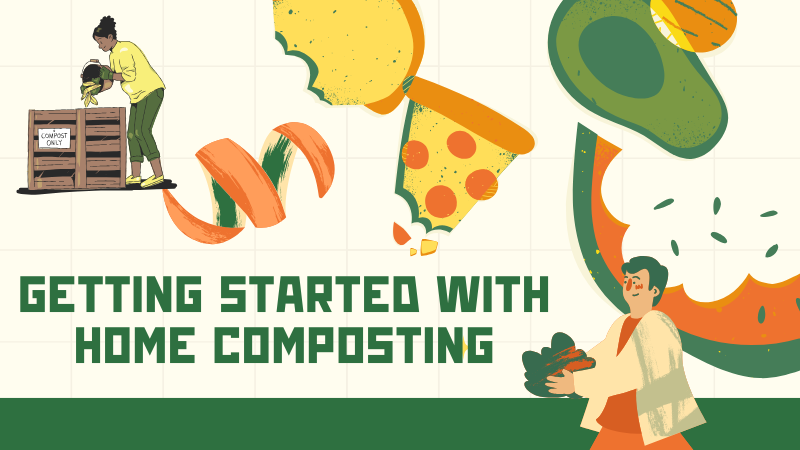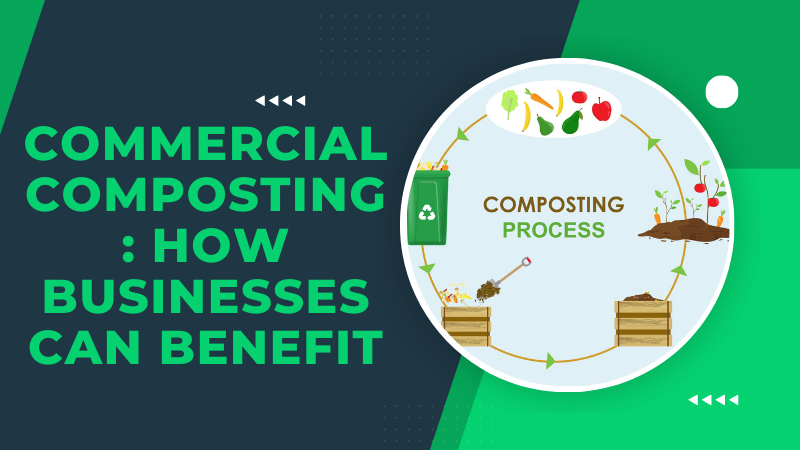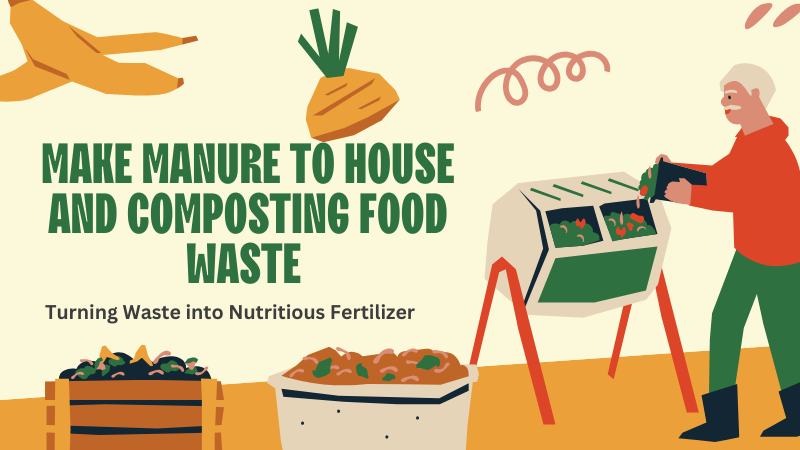Composting provides an easy environmentally friendly approach to addressing worldwide food waste issues.
This guide will help both beginners who want to compost at home and business owners exploring commercial composting by providing step-by-step information starting from the basics.
Why Compost Food Waste?
There are many benefits of making food waste fertilizer:
- Landfill reduces waste – food scrap in landfills produces methane, a harmful greenhouse gas.
- Improvement in soil health – Compost enriches soil with nutrients, and promotes plant growth.
- Reduces carbon footprints – by fertilizing, you reduce transport and landfill emissions.
- Saves money – reduced garbage can reduce the cost of waste disposal for homes and businesses.
Getting Started with Home Composting Food Waste

If you are new to making manure, follow these simple steps to start at home:
1. Choose a manure method
- Backyard composting: ideal for people with outer location; Use a manure bin or pile.
- Indoor composting: perfect for apartments; Consider vermicomposting (using insects) or Bokashi compartment.
2. Know what is manure
A balanced manure pile includes:
- Greens (nitrogen-rich): fruit and vegetable scraps, coffee ground, egg peels.
- Brown (carbon-rich): dry leaves, paper, cardboard, sawdust.
- Avoid: Meat, dairy, oily foods, and pet waste they attract pests and cause smell.
3. Keep your manure
- Turn on the pile: To speed up decomposition, attach it regularly.
- Keep it moist: It should feel like a moist sponge; Add water if very dry.
- Monitor the balance: If it becomes a bad fragrance, add more brown; If it is very dry, add greens.
Composting Food Waste Commercial: How Businesses Can Benefit

Businesses generate large amounts of food waste, and commercial fertilizer helps to manage it continuously.
1. How does this work
- Collection Services: Many companies offer food waste collections to make fertilizer.
- On-site composting: restaurants, farm and food manufacturers can install compost-system.
2. Benefits for businesses
- Waste disposal reduces cost costs – less waste means low cost.
- Stability enhances reputation and prefers conscious businesses towards the environment.
- Supports local agriculture – compost can be used by farms or community gardens.
Common Composting Challenges and Solutions
- Poor smell? Add more brown materials such as dry leaves or paper.
- Many insects? Avoid meat and dairy, and use a well-sealed bin.
- Slow decomposition? Ensure proper aeration and balance of greens and brown.
Frequently Asked Questions (FAQs)
1. What is the duration required for food waste to begin to break down?
Ans. Composting time varies depending on the method and conditions, but usually, it takes 2-6 months to prepare the compost.
2. Can I manure cooked food scrap?
Ans. Ripe food, especially oily or dairy-based objects is best to avoid making manure, as they can attract pests.
3. Do I need insects to make manure?
Ans. No, but vermicomposting (using insects) speeds up the process and is great for indoor composting.
4. What should I do if my manure gets spoiled?
Ans. Bad smells indicate too much moisture or nitrogen. Add more dry materials like paper or leaves and complete the pile.
5. Can I make manure in winter?
Ans. Yes! In the cold months, the fertilizer slows down but continues. Insulating bin or using indoor systems can help maintain decomposition.
Final Thoughts
Creating food waste is a simple but effective way to reduce waste, enrich the soil and contribute to a healthy planet. Whether you are making manure at home or managing waste commercially, the benefits are undisputed. Start your fertilizer journey today and create a positive difference for the environment!










